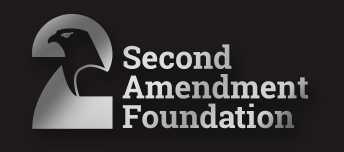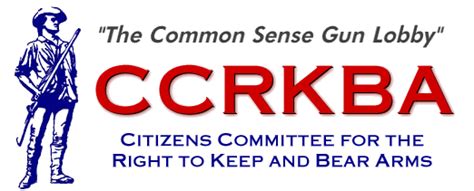 I Disagree With Their Position On Background Checks, But There Are Some Things In Their Article That We Can Agree With
I Disagree With Their Position On Background Checks, But There Are Some Things In Their Article That We Can Agree WithThis post will be in two parts. The first part will be a fair breakdown of what actions they suggest in their article, with short critiques. The second part
will be a critique of their dreaded statements on the issue of
background checks in which I will make it clear that any expansion of
background checks will likely produce zero positive results.
Part One: The Actions They Suggest Other Than Background Checks
Under the heading “Education, Awareness and Norm Change”, which, to be fair, they say will have the greatest impact, they suggest the following actions:
1) “Fostering a deep appreciation among gun owners of the real dangers of owning and carrying guns and what can be done to mitigate those dangers. Doing that requires a disciplined strategic approach, with messaging and programs that pass the smell test as being completely independent of any policy goal or those advocating for them.”
Translation: Promote real “gun safety”. I think they are advocating the wider promotion of safe storage and basic gun safety. Of course, this is something the NRA has done for decades, so this should not be controversial.
2) “This is obviously tricky business, but we are certain there are numerous unscaled initiatives and ideas already out there, such as furthering public education about warning signs of mental illness and suicide that, with the right communications expertise and strategy, have great potential.”
Translation: Getting people mental health treatment, by enabling people to recognize the signs of trouble has great potential to save lives. Again, this is something gun rights advocates have been promoting for a long time.
3) “Another area of education, awareness and action that clearly holds great promise is the work of “violence interrupters” in cities and communities across the country. We believe these efforts are entirely consistent with and complementary to all the ideas reflected in this document.”
Translation: Focusing upon the people who commit violent acts (crimes) is productive because it attacks the root of the problem – people, not the weapons they use. Again, this is non-controversial.
Under the heading, “Simplifying, Clarifying and Enforcing Existing Laws”
Note: In my more than 50 years in the 2A fight, I have noted a pattern. The anti-gun side passes a law. That law is not enforced. The anti-gun side then says that stricter laws are needed because current laws are not working. For this reason I am in favor of enforcing current laws, with the goal of holding criminals accountable and making those laws work to the maximum extent possible.
“Of the many opportunities to have impact in this area, the strongest example, and the one entirely consistent with our messaging goals, is the opportunity to substantially reduce gun homicides in urban communities by cracking down on a small number of gun dealers that are clearly bad actors. Most federally licensed dealers are decent, law abiding folks who share in the goals of public safety. Significant evidence shows that there is a shockingly small percentage of dealers that are selling the overwhelming majority of guns used in crimes, and that they are doing it knowingly and illegally, and that this is a major source of the illegal gun trafficking and sales that are disproportionately plaguing too many communities of color across the country. We believe this warrants, at the very least, an investment in further investigation and then a proportionate response from law enforcement.”
Translation: Crack down on bad FFLs. Here I have concerns. Right now, legally all that the ATF can do is issue a warning or revoke their license. This should change so that we don’t see ATF agents pressured to revoke licenses over minor record keeping errors. There should be penalities that are less than revokation. If this concern could be addressed, I certainly support cracking down on bad FFLs and criminally prosecuting dealers who knowingly sell to prohibited persons.
Whats missing: Bad FFLs simply are not the source of most crime guns. Illegal street dealers and straw purchases are the source of nearly 2/3 of criminal’s firearms (according to a US DOJ study published 1/2019). Cracking down on these two sources has a much greater potential to reduce criminal’s access to firearms than going after the few bad FFLs.
Part Two: The Background Check Debacle
Here I am first going to try to be fair to these two men by trying to understand what they are saying and what they are not saying. “Expanded Background Checks” is a loaded term that can mean many things, so I will take care to understand EXACTLY what they are advocating.
1) “Fortunately, the policy area with the most synergistic message is also the one that represents what we believe is the greatest potential for impact: Expanded Background Checks.”
Here they are simply dead wrong. That same US DOJ study established that private sales are the source of less than 2% of criminals firearms. Private sellers who care about the law do not want to sell to a prohibited person for many reasons and are therefore careful about whom they sell to.
2) “The overwhelming majority of gun owners have already accepted that anyone engaged in the business of selling guns commercially, should be required to conduct a background check.”
Of course, this is already the law! It is illegal to be in the business of selling firearms without an FFL and all FFLs must conduct background checks. They are likely correct that a majority of gun owners support this requirement – even though many 2A advocates do not.
Here I think they are falling into the false idea that illegal dealers are the same thing as “private sellers”. Illegal dealers are already breaking many laws and certainly are not going to conduct background checks because a new law requires it.
3) “At the same time the two of us believe that many private transfers, such as gifting a gun to a family member or letting a fellow member of a gun club borrow a firearm for a competition or hunting event should be legal and remain a private transaction outside of government regulation.”
Translation: They ARE NOT supporting HR8. In fact, they are clearly opposed to it.
4) “We believe any expansion of the Background Check requirement should be focused on transfers to strangers. Sure, there are some important details to work out around exceptions such as specific definitions of “strangers,”
Translation: They would be supportive of a bill like that previously put forth by Sen. Joe Manchin, which would only require checks when the person is not known to the seller. This, to be fair, is a far cry from HR8.
5) “and exceptions that would make it impossible for the government to compile a comprehensive list of gun owners”
Translation: They too see the danger in the government having a list of gun owners. How they would do the checks without this happening and still provide proof that the seller complied with the law is an open question.
6) “but we are confident that there are solutions that can make a huge impact if we stick to the principle and message of only keeping guns from the people we all agree shouldn’t have them.”
Translation: They want to focus upon prohibited persons. While I do think that this is where the focus should be, I am concerned about the expansion of prohibited persons advocated, not by the authors, but by others.
So, the bottom line is that they are, among other things, advocating for expanding the background check requirement to private sales between strangers – not for HR8 or the Bloomberg background check model.
Are they wrong about this? YES.
Why?
1) There is no way that expanding background checks is going to have a major impact when such sales are responsible for such a tiny percentage of criminals guns. Illegal dealers would ignore this law, just like they ignore all the others they break every day. Increased enforcement of the laws already on the books against illegal gun sales and straw purchasing have much greater potential.
2) It would be difficult – though not impossible – to enforce this law without a registry. However, I would expect compliance to be high, as sales between friends would be exempt. This law would clearly operate largely on the honor system absent a registry.
3) Passage of any kind of background check expansion – no matter how modest – would be seen by many on both sides as simply another step towards draconian gun control: Background checks lead to registration which leads to confiscation.
4) To be fair, passage of a moderate expansion of checks to private sales – such as they propose – could make it more difficult for our opponents to pass a radical expansion such as HR8 in the foreseeable future. How? Well, first of all, public support would be low because of the perception that “We just did that”. Second, in the debate over any future expansion, opposition would be focused upon the radical nature of the changes (at least that would be my approach). There is significant support for background checks on SALES, there is not significant support for criminalizing that act of handing a gun to another person. Many who support HR8 think it only affects sales and would never support a background check requirement on all "transfers".
So, to be clear, I disagree with expanding background checks.
Does taking this position make Rob Pincus a sell out who should be “canceled” and “expelled” from the 2A community? I think not.
If we become a community in which we allow no debate, in which there is no diversity of opinion, how are we any better than the other side? Someone who agrees with you 95-98% of the time is going to be an asset in most of the battles you fight as a 2A advocate. Debate with them. Correct them with facts. Convince them to change their minds.
Rob Pincus, I do not hate you. I recognize all the good you have done. I disagree with you on this issue and I hope you will reconsider. If not, I hope to stand with you on other 2A issues.
Rev. R. Vincent Warde
3-30-2021
Part One: The Actions They Suggest Other Than Background Checks
Under the heading “Education, Awareness and Norm Change”, which, to be fair, they say will have the greatest impact, they suggest the following actions:
1) “Fostering a deep appreciation among gun owners of the real dangers of owning and carrying guns and what can be done to mitigate those dangers. Doing that requires a disciplined strategic approach, with messaging and programs that pass the smell test as being completely independent of any policy goal or those advocating for them.”
Translation: Promote real “gun safety”. I think they are advocating the wider promotion of safe storage and basic gun safety. Of course, this is something the NRA has done for decades, so this should not be controversial.
2) “This is obviously tricky business, but we are certain there are numerous unscaled initiatives and ideas already out there, such as furthering public education about warning signs of mental illness and suicide that, with the right communications expertise and strategy, have great potential.”
Translation: Getting people mental health treatment, by enabling people to recognize the signs of trouble has great potential to save lives. Again, this is something gun rights advocates have been promoting for a long time.
3) “Another area of education, awareness and action that clearly holds great promise is the work of “violence interrupters” in cities and communities across the country. We believe these efforts are entirely consistent with and complementary to all the ideas reflected in this document.”
Translation: Focusing upon the people who commit violent acts (crimes) is productive because it attacks the root of the problem – people, not the weapons they use. Again, this is non-controversial.
Under the heading, “Simplifying, Clarifying and Enforcing Existing Laws”
Note: In my more than 50 years in the 2A fight, I have noted a pattern. The anti-gun side passes a law. That law is not enforced. The anti-gun side then says that stricter laws are needed because current laws are not working. For this reason I am in favor of enforcing current laws, with the goal of holding criminals accountable and making those laws work to the maximum extent possible.
“Of the many opportunities to have impact in this area, the strongest example, and the one entirely consistent with our messaging goals, is the opportunity to substantially reduce gun homicides in urban communities by cracking down on a small number of gun dealers that are clearly bad actors. Most federally licensed dealers are decent, law abiding folks who share in the goals of public safety. Significant evidence shows that there is a shockingly small percentage of dealers that are selling the overwhelming majority of guns used in crimes, and that they are doing it knowingly and illegally, and that this is a major source of the illegal gun trafficking and sales that are disproportionately plaguing too many communities of color across the country. We believe this warrants, at the very least, an investment in further investigation and then a proportionate response from law enforcement.”
Translation: Crack down on bad FFLs. Here I have concerns. Right now, legally all that the ATF can do is issue a warning or revoke their license. This should change so that we don’t see ATF agents pressured to revoke licenses over minor record keeping errors. There should be penalities that are less than revokation. If this concern could be addressed, I certainly support cracking down on bad FFLs and criminally prosecuting dealers who knowingly sell to prohibited persons.
Whats missing: Bad FFLs simply are not the source of most crime guns. Illegal street dealers and straw purchases are the source of nearly 2/3 of criminal’s firearms (according to a US DOJ study published 1/2019). Cracking down on these two sources has a much greater potential to reduce criminal’s access to firearms than going after the few bad FFLs.
Part Two: The Background Check Debacle
Here I am first going to try to be fair to these two men by trying to understand what they are saying and what they are not saying. “Expanded Background Checks” is a loaded term that can mean many things, so I will take care to understand EXACTLY what they are advocating.
1) “Fortunately, the policy area with the most synergistic message is also the one that represents what we believe is the greatest potential for impact: Expanded Background Checks.”
Here they are simply dead wrong. That same US DOJ study established that private sales are the source of less than 2% of criminals firearms. Private sellers who care about the law do not want to sell to a prohibited person for many reasons and are therefore careful about whom they sell to.
2) “The overwhelming majority of gun owners have already accepted that anyone engaged in the business of selling guns commercially, should be required to conduct a background check.”
Of course, this is already the law! It is illegal to be in the business of selling firearms without an FFL and all FFLs must conduct background checks. They are likely correct that a majority of gun owners support this requirement – even though many 2A advocates do not.
Here I think they are falling into the false idea that illegal dealers are the same thing as “private sellers”. Illegal dealers are already breaking many laws and certainly are not going to conduct background checks because a new law requires it.
3) “At the same time the two of us believe that many private transfers, such as gifting a gun to a family member or letting a fellow member of a gun club borrow a firearm for a competition or hunting event should be legal and remain a private transaction outside of government regulation.”
Translation: They ARE NOT supporting HR8. In fact, they are clearly opposed to it.
4) “We believe any expansion of the Background Check requirement should be focused on transfers to strangers. Sure, there are some important details to work out around exceptions such as specific definitions of “strangers,”
Translation: They would be supportive of a bill like that previously put forth by Sen. Joe Manchin, which would only require checks when the person is not known to the seller. This, to be fair, is a far cry from HR8.
5) “and exceptions that would make it impossible for the government to compile a comprehensive list of gun owners”
Translation: They too see the danger in the government having a list of gun owners. How they would do the checks without this happening and still provide proof that the seller complied with the law is an open question.
6) “but we are confident that there are solutions that can make a huge impact if we stick to the principle and message of only keeping guns from the people we all agree shouldn’t have them.”
Translation: They want to focus upon prohibited persons. While I do think that this is where the focus should be, I am concerned about the expansion of prohibited persons advocated, not by the authors, but by others.
So, the bottom line is that they are, among other things, advocating for expanding the background check requirement to private sales between strangers – not for HR8 or the Bloomberg background check model.
Are they wrong about this? YES.
Why?
1) There is no way that expanding background checks is going to have a major impact when such sales are responsible for such a tiny percentage of criminals guns. Illegal dealers would ignore this law, just like they ignore all the others they break every day. Increased enforcement of the laws already on the books against illegal gun sales and straw purchasing have much greater potential.
2) It would be difficult – though not impossible – to enforce this law without a registry. However, I would expect compliance to be high, as sales between friends would be exempt. This law would clearly operate largely on the honor system absent a registry.
3) Passage of any kind of background check expansion – no matter how modest – would be seen by many on both sides as simply another step towards draconian gun control: Background checks lead to registration which leads to confiscation.
4) To be fair, passage of a moderate expansion of checks to private sales – such as they propose – could make it more difficult for our opponents to pass a radical expansion such as HR8 in the foreseeable future. How? Well, first of all, public support would be low because of the perception that “We just did that”. Second, in the debate over any future expansion, opposition would be focused upon the radical nature of the changes (at least that would be my approach). There is significant support for background checks on SALES, there is not significant support for criminalizing that act of handing a gun to another person. Many who support HR8 think it only affects sales and would never support a background check requirement on all "transfers".
So, to be clear, I disagree with expanding background checks.
Does taking this position make Rob Pincus a sell out who should be “canceled” and “expelled” from the 2A community? I think not.
If we become a community in which we allow no debate, in which there is no diversity of opinion, how are we any better than the other side? Someone who agrees with you 95-98% of the time is going to be an asset in most of the battles you fight as a 2A advocate. Debate with them. Correct them with facts. Convince them to change their minds.
Rob Pincus, I do not hate you. I recognize all the good you have done. I disagree with you on this issue and I hope you will reconsider. If not, I hope to stand with you on other 2A issues.
Rev. R. Vincent Warde
3-30-2021









